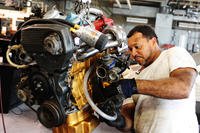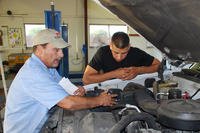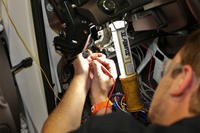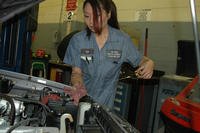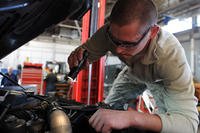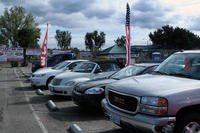Synopsis: Before you commit to a new car, track down the answers to these questions.
Buying a car is exciting! But don't let your eagerness to get behind the wheel steer you into a raw deal. Make sure you have the answers to these 10 questions before you make a purchase:
1. How will I use the car?
Finding the right car starts with a thorough consideration of your needs. Think about the relative importance to you of features like fuel economy, cargo room, safety features, performance and passenger comfort.
2. What's my budget?
Let your budget drive your selection and consider only cars within your price range. If you know the monthly payment that fits your budget, you can figure out the purchase price you can afford, based on the loan term and interest rate. Or, if you know the purchase price, you can check how different terms and interest rates would affect your monthly payment.
3. How much will I pay for the car?
Scout out list prices at various dealerships, car guides and other resources, for a one-stop look at invoice prices and MSRP (manufacturer's suggested retail price) of any car you're considering. Don't get caught up in the promise of low monthly payments; focus instead on the total amount you'll pay for the car. Negotiate the lowest out-the-door cost for the vehicle, including title, taxes and any add-ons, before discussing financing.
4. What's the car's history?
If you're purchasing a used vehicle, always get a vehicle history report to verify mileage and check for past damage. Using the vehicle identification number (VIN), these reports can tell you whether the car has been damaged in a crash, flood or other manner and what repairs were made.
5. How can I be certain the vehicle is in good condition?
When buying used, always have the car inspected by an independent, certified mechanic prior to purchase to confirm the condition. If the seller seems hesitant to allow an inspection, proceed with great caution.
6. What will the maintenance costs be?
Maintenance costs vary by make, model and even year. You can find a lot of this information on automotive websites, by talking to your mechanic or by seeking out other owners of the same vehicle and asking their experience.
7. How much will it cost to insure it?
Auto insurance premiums vary based on make and model. Call your insurance company to find out how much the car you're considering will cost you in insurance premiums—before you buy. If you're in the military, you and your family may qualify for a discount on auto insurance.
8. How well will the vehicle hold its value?
Resale value is important if you plan to sell or trade in your car within a few years. Check NADA guides for trade-in and retail values of used cars.
9. What's the warranty coverage?
A good warranty offers a lot of protection against future repair costs. When making your purchase, find out exactly what's covered and for how long. Some warranties may include roadside assistance, a perk that can protect you on your travels. Compare warranty options with what's covered by your insurance so you're not paying for the same coverage twice.
10. Which is better: dealer financing or credit union financing?
Auto manufacturers sometimes offer low interest rates that can seem pretty attractive. But it often means giving up a rebate that can lower the total cost of the vehicle. Usually, taking the rebate and financing the balance with a low interest rate car loan from your credit union is a better deal.





